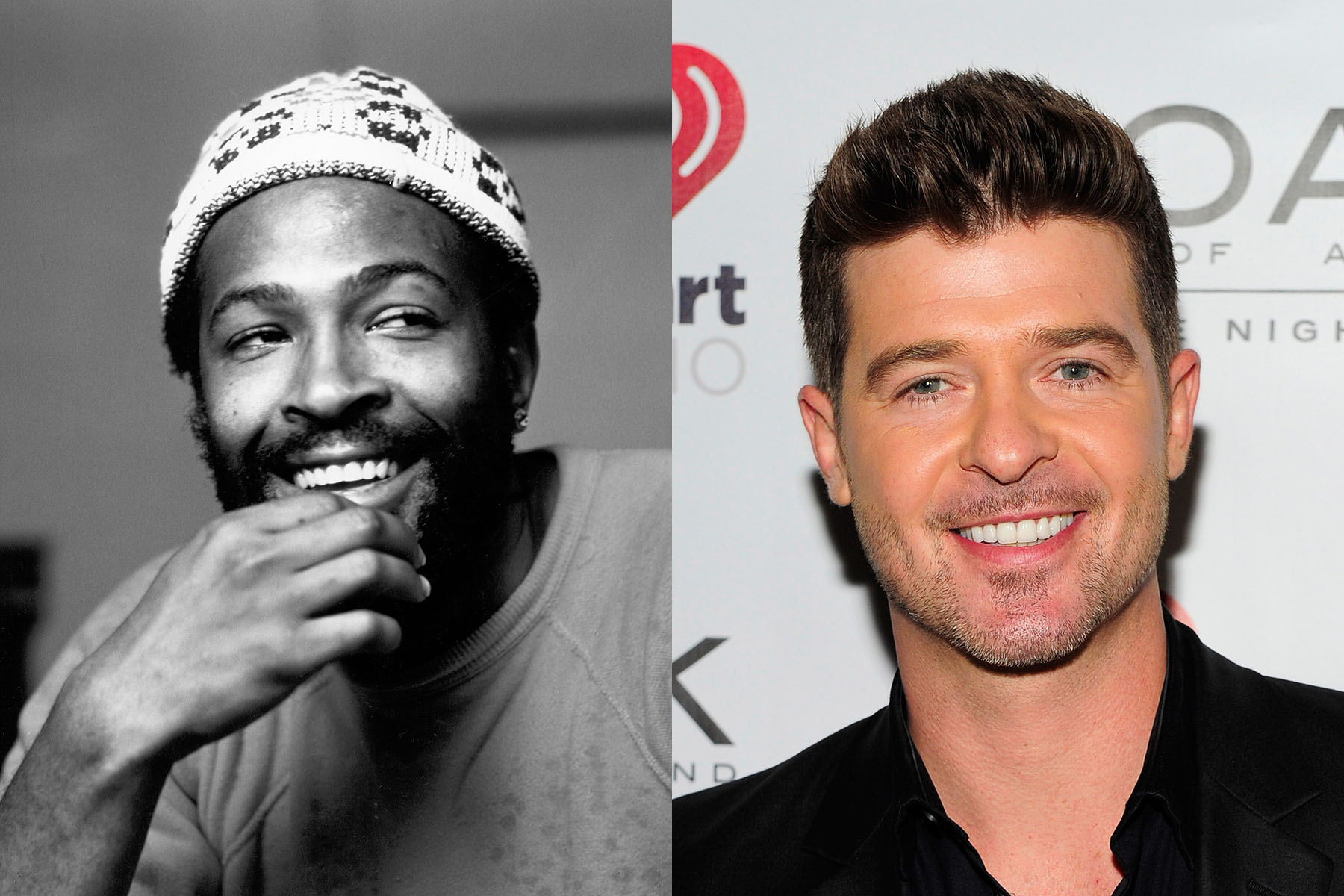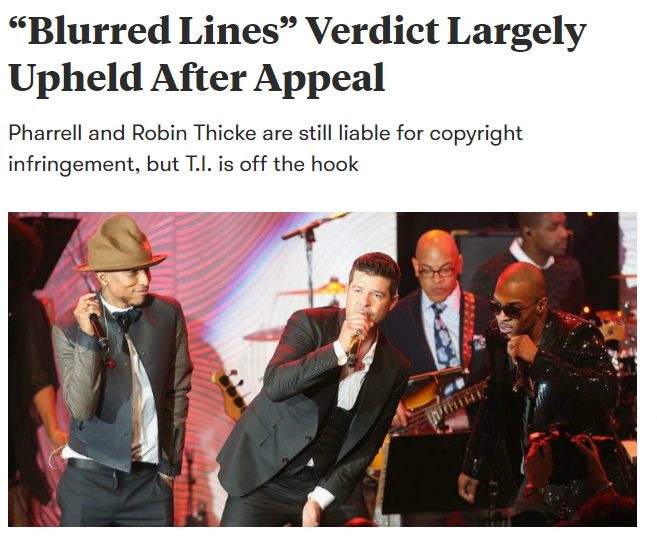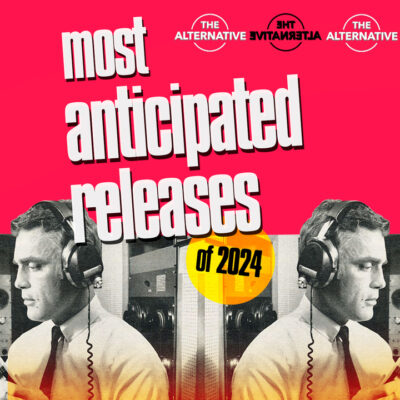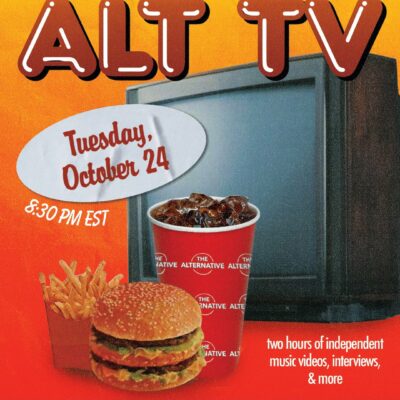Blurred Laws: Why the “Blurred Lines” result is trouble for the music industry.
Posted: by admin

It’s rare that legal disputes between musicians gain a wider cultural and industry relevance. Who really cares whose suing who and the winner other than the people involved? Well, sometimes it really matters, not just for one case, but also for the future of the music industry. The “Blurred Lines” copyright lawsuit is one of those.
In 1977, Marvin Gaye, legendary writer and performer of many hit songs from the 60‘s and 70‘s, released “Got to Give It Up”. It charted at #1 and was a successful single for the soulful star. Over 30 years later, Robin Thicke armed with his songwriting team (which included Pharrell Williams) wrote “Blurred Lines”, a hit song that Thicke openly admitted had been inspired by Marvin Gaye’s track. It also charted at #1 and boosted Thicke (briefly) into the upper echelon of pop stars.
However, Gaye’s estate (which now maintains his rights and revenues since the star’s death in 1984) thought “Got To Give It Up” did much more than inspire the “Blurred Lines”. They felt that Marvin Gaye’s original had been copied, and they felt disrespected that Thicke’s team had never offered them a fair share of the revenue. Teams of lawyers from both sides suited up, and when negotiations broke down, brought the case to court.
There are two main varieties of copying that are forbidden under the music copyright laws of the US. The first is an unlicensed use of the master recording, which is literally copy-pasting part of someone’s record into your song (aka sampling). The second type is copying of the musical composition, which almost always entails taking someone else’s melody and/or lyrics and using them in a new song. “Blurred Lines” contained no unlicensed samples, but it was this second musical composition copying that Gaye’s estate believed had occurred.
Gaye’s estate had quality legal representation, but there was an issue. Upon analysis by music experts, it was found that there was no place where “Blurred Lines” identically copied the Gaye track. With no series of notes that anyone could point to and say, “here is where Thicke stole from Gaye”, Robin should have been in the clear right? Wrong.
To remedy this issue, Gaye’s legal team made an interesting longshot argument that had to this point never been successfully attempted, certainly not in a case with many millions of dollars at stake. They argued that while the song didn’t copy the musical composition exactly, “Blurred Lines” had stolen the “groove” of the Gaye original (yes, “groove” is now a legal term, may gosh help us all). This argument skates by in a legal gray area designed to catch someone who might try to copy a song by changing the notes just slightly enough to not be an identical copy.
The law holds that if a song sounds identically similar to another prior track, so much so that a listener can’t tell the difference, this is copying and therefore theft, even if the notes are different. Now take that theory another step forward, what if the song doesn’t contain the same patterns of notes, and doesn’t sound identical to the prior song, but its sound reminds you of a prior song? Should that be considered copying? That’s what Gaye’s team was arguing.

After Robin Thicke offended everyone with his behavior outside of the courtroom, and then admitted he was too drug addicted to write music, the jury was very willing to listen to any interpretation of the law that would result in this jerk (along with Pharrell and others) paying the family of a deceased legend. The hail mary worked. Gaye’s team won the case, and suddenly the entire foundation of music copyright was shifting below the industry’s feet. Don’t all hit songs sound like past songs in the same genre? Won’t this mean everyone is about to get sued?
*shaking magic 8 ball* Initial signs point to yes. Since this first lower court ruling, there have already been tons of hit songs getting sued, most notably Sam Smith getting sued by Tom Petty and Miley Cyrus just recently getting sued by reggae artist Flourton. Sometimes this has resulted in a lawsuit, but often current artists instead hand over large chunks of their songwriting royalties in order to avoid the courtroom where the outcome is now unpredictable. Songwriters are being forced to ask the question whether they should give away 10% of their song now, or spend a ton of money in court only to lose even more. In a streaming age where musicians (and especially songwriters) are making scraps from their royalties, and sync licenses are elusive, giving up large royalty percentages to other artists is not ideal. Huge legal fees are an added bonus.
The result of this ruling likely means artists will give away more of their royalties, make less from their hits, and face more expensive lawsuits, and for what purpose? So that new artists are less likely to make music that sounds like their heroes? I’m not sure that’s even preventable. Imagine if Fall Out Boy or Wu-Tang Clan sued every song that came out after theirs with a similar sound? To be honest, the only thing preventing that from happening already is that most songs’ royalties aren’t worth the money they would cost in legal fees to get. That’s why this ruling is so important. Artists are already struggling enough, and this is an unnecessary burden.

There was a thought among many music industry players that the “Blurred Lines” case would get appealed and reversed, or even that the two sides would settle out of court and weaken the strength of the prior ruling. However, recently the federal appeals court (which can only be overruled by the Supreme Court) decided to affirm the lower decision. The music industry is still sitting jaw on the floor stunned.
The appeals court held (in a split decision) that Gaye’s track was “entitled to broad copyright protection because musical compositions are not confined to a narrow range of expression” and awarded the Gaye estate a huge payment along with 50% of all future songwriting royalties earned by “Blurred Lines”. Oh…
We now face a future where sounding like someone is grounds for a lawsuit, and it doesn’t seem pleasant. I just read an article suggesting artists should pay musicologists to review their tracks to see if they accidentally incorporated some past artist’s “groove”; this seems expensive, excessive, and unlikely.
Are these the shadows of things that will be? These things can change? Its hard to say. The Supreme Court could take the case, but that seems unlikely considering how much they have going on at the moment. There’s also a chance artist and industry pressure to reverse the ruling will eventually urge other courts to take the opposite position. As mentioned before, this case was a split decision in the appeals court. As the dissenting justice noted, “‘Blurred Lines’ and ‘Got to Give It Up’ are not objectively similar. They differ in melody, harmony, and rhythm. Yet by refusing to compare the two works, the majority establishes a dangerous precedent that strikes a devastating blow to future musicians and composers everywhere.” For now it looks like we will just have to wait and see how bad the effects will be.
.
Full disclosure: I worked on this lawsuit from Marvin Gaye’s side in it’s early stages when I was a legal intern years ago. I’m not privy to any information that isn’t now widely available in the press, nor have I disclosed anything in this article that would be considered confidential.
_
Henderson // @HendoSlice
The Alternative is ad-free and 100% supported by our readers. If you’d like to help us produce more content and promote more great new music, please consider donating to our Patreon page, which also allows you to receive sweet perks like free albums and The Alternative merch.










